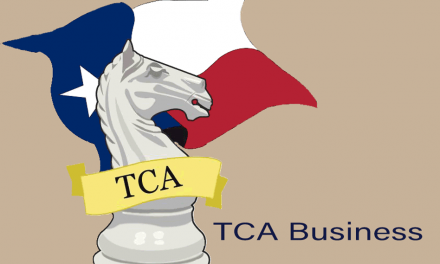Texas Chess Association
Spring General Body Meeting
Saturday, March 5, 2016
8:30 p.m.
Agenda
- Call to order by TCA President Lakshmana Viswanath
- Approval of minutes from Fall 2015 Meeting
- Old Business
- Financial report – Barbara Swafford (Treasurer)
- Report from Vish
- New Business
- Motion 1 – New Bylaw change motion by Luis Salinas
- Motion 2 – New Bylaw change motion by Luis Salinas
- Motion 3 – New Election procedures by Jeff French (Elections Committee)
- Floor comments
- Adjournment
Motion 1
Clarification of Article IX section 1 E
Only Texas residents or students enrolled in secondary or primary
schools (including home schools) in Texas may play in this event. In any case no student can play in two different state closed scholastic Championships.
Note that the sentence in bold italics is new and to be added to the bylaws
Clarification:
Students must Physically Live in Texas or Physically go to school in Texas during the school year.
Examples:
- Student goes to boarding school out of state. Student cannot play in tournament as student does not physically live or attend school in Texas.
- Student lives out of state but attends an internet school based in Texas. Student is not allowed to play as the student does not physically go to school in Texas.
- Student lives out of state but attends school in Texas. Student can play provided he does not also play in the other state’s closed scholastic championship.
- A student whose parent(s) are in the military and live out of the country, but their official residence is Texas. Can play in the state scholastic as the student has no other state scholastic in which to compete.
Note that case 4 will be a know exception as expressed by a former TCA membership meeting. This body may choose otherwise.
Motion 2
The TCA assigns a committee to determine how the Denker, Barber and the National tournament of Girls Championship (formerly the NGIT) is determined. The committee will produce a motion for consideration at the Fall TCA membership meeting.
Suggestions:
A match will be played in either the first weekend or second weekend in June to determine the representatives.
Possible formats:
A central city in Texas will be chosen for the match. The winner of the North/Central Scholastic tournament will play a match to determining the Denker rep. The Highest finishing girl in the North/Central scholastic and South Texas scholastic play a match to determining the NGIT rep. The Winner of MS Champion of both the North/Central and South will play in a tournament to determine the winner of the Barber Champs.
Since a playoff is being held, the committee may possibly want to discuss whether the co-champions should also play in the tournaments.
During the SuperState, the current format can be used. But this should not stop the committee from discussing any possible changes.
Motion 3
Article V: OFFICERS Section 3. Elections A. Election of the officers of the Association, as well as tournament bids on official TCA events, shall be by ballot. B. An active membership, in good standing, on July 1st is required in order to vote in an upcoming officer election (elections typically occur in the month of August, so, effectively, you must be a member on the first day of the month prior to the election month). Members under the age of 17 are not allowed to vote in officer elections. Members subscribed through Non-Resident, Club, Scholastic Club and Foreign memberships are not allowed to vote in officer elections. C. Officer ballots can currently be either paper or electronic. The goal of the TCA is to move to electronic only officer ballots. Members can only vote by electronic or paper ballot in officer elections, not both. Tournament bids are only paper ballots. D. Officer ballots shall be prepared by the Secretary, or a designee of the Secretary, listing the nominations for each officer post.i. Sufficient copies of the paper ballot shall be published in order that each voting member, in good standing, that cannot or does not want to vote electronically, may vote. The Secretary may mail a copy of the paper ballot or have a copy of the paper ballot included with the July/August issue of Texas Knights. A pre-addressed envelope shall be included with the paper ballots.a. Each paper officer ballot must include a unique identifier. b. The unique identifier will be used during tallying to guarantee that multiple ballots with the same identifier are not present. c. If duplicate identifiers are found during the tallying process. All ballots with duplicate identifiers will be ignored (not counted during the tallying process).ii. Each voting member, in good standing, that can and wishes to vote electronically, will be sent an email containing a unique link to an electronic ballot for voting in an officer election. For family memberships, emails containing a unique link to an electronic ballot will be sent for each voting member. Multiple emails can be provided to a single (family shared) email address or single emails can be provided for each family member to unique email addresses. Note: The online service specification indicates the requirement of not allowing duplicate votes. So the duplicate identifier requirement provided for paper ballots is not necessary for electronic ballots. iii. By default, if members provide an email address during membership sign-up or renewal, they will automatically be registered for electronic ballots. Members do have the option to opt-out of electronic ballots and will be provided paper ballots at their request.E. The President shall appoint a special committee to tally the officer votes. This committee shall be made up of at least one Board member and one voting member.i. Officer ballots shall be tallied during a public meeting during the Southwest Open. ii. Paper officer ballots shall be tallied and will not be opened before the tally is performed. iii. Electronic officer ballot results shall be added to the paper officer ballot tally. iv. The combination of the paper officer ballot counts for each nominee and the electronic officer ballot results for each nominee will be considered the final officer ballot total for each nominee. v. The nominee having a plurality shall be declared the winner of each office. The committee chairperson will present the election results to the President prior to or during the first part of the Annual Meeting. The committee chairperson will announce the election results at the appropriate time during the Annual Meeting.F. An online service will be used for electronic ballots in officer elections. Note: ElectionBuddy.com has been found, through testing, to meet all of the below requirements. In addition, it is very reasonably priced.i. The online service must provide the ability to define one or more candidates for each office being considered for re-election. ii. The online service must provide the ability to allow write-ins of candidates for each office being considered for re-election. iii. The online service must provide the ability for selection of a single candidate for each office being considered for re-election. iv. The online service must provide the ability to include a survey (containing one or more questions) on the ballot. v. The online service must provide the ability to upload a list of email addresses to send links of unique ballots to each member and be able to distribute the emails to members with the links to the ballots. vi. The online service must NOT allow multiple votes by a single member and only a defined number of votes for family members (predetermined and based on members of the family that can vote). vii. The online service must allow the setup of a Start Date/Time and End Date/Time of an election. In addition, the online service must NOT allow voting before the Start Date/Time or after the End Date/Time of an election. viii. The online service must provide detailed results of the election at the conclusion of the election.


